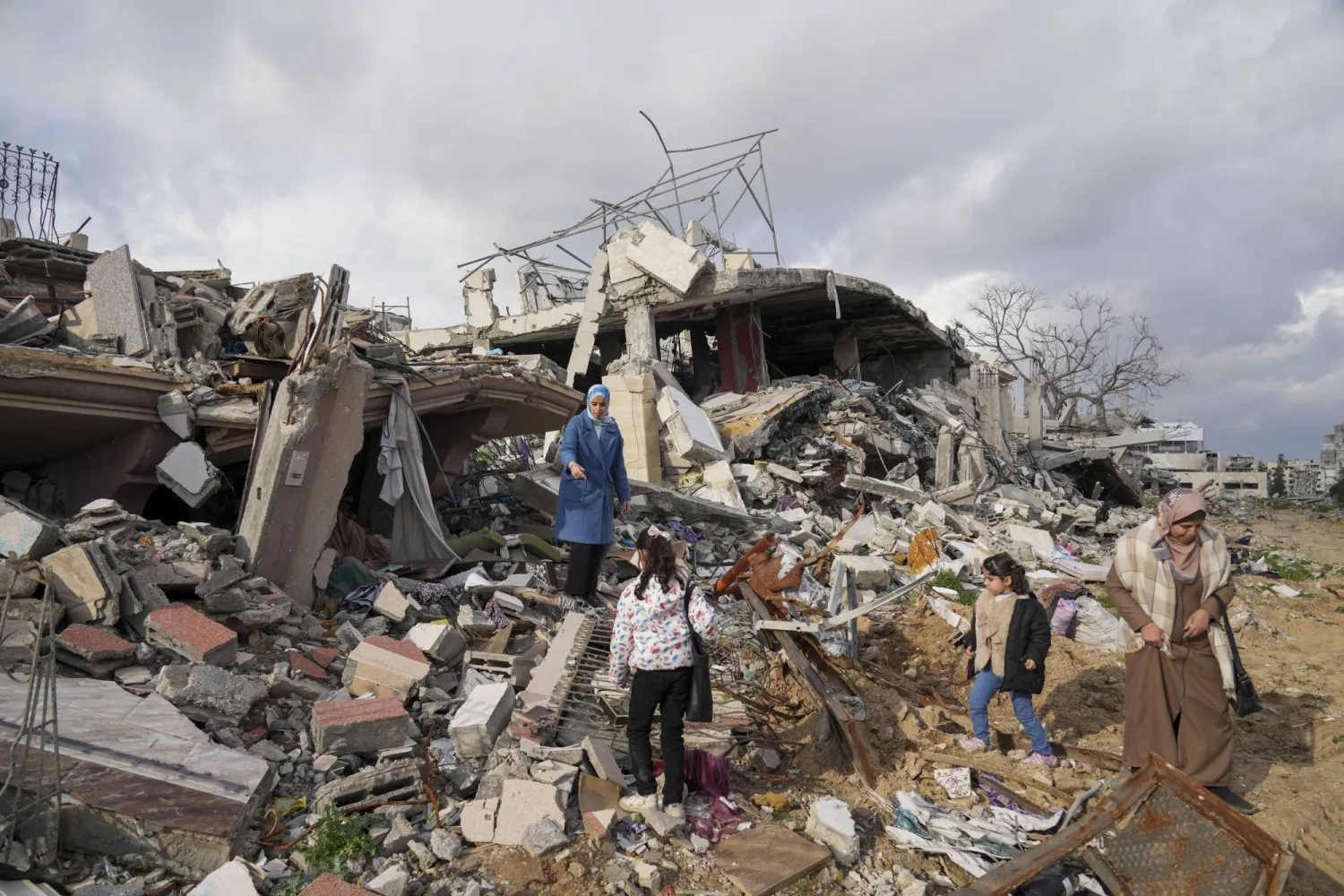Egypt rejects proposals to displace the Palestinian people in order to not "liquidate" the Palestinian cause and to avoid threatening the national security of countries in the region, according to a statement by the Egyptian Presidency on Tuesday.
US President Donald Trump has infuriated the Arab world with a plan to permanently displace the population of more than 2 million Palestinians from the Gaza Strip, claim US control of it and turn it into the "Riviera of the Middle East.”
Egypt will on March 4 host an emergency Arab League summit set to focus on Arab efforts to counter Trump's plan and calls for Egypt and Jordan to resettle displaced Palestinians from Gaza. Both countries reject the proposal, citing national security concerns.
A six-week ceasefire agreed between Israel and Hamas in Gaza is due to end Saturday, and it’s uncertain what will happen next. There are efforts to extend the calm as the next phase is negotiated.
Hamas-led militants abducted 251 people in its Oct. 7, 2023, attack that triggered the war. More than 48,000 Palestinians in Gaza, mostly women and children, have been killed in the ensuing conflict, according to Gaza’s Health Ministry.
Hamas freed six Israelis on Saturday in the last scheduled release of living hostages by the militant group under the current stage of a ceasefire agreement with Israel.
In all, a total of 33 Israelis are being freed during this stage — including eight who are dead. Five Thai hostages have also been freed separately. Sixty-three hostages, including the body of a soldier held since 2014, remain in Gaza.
Israel is releasing nearly 2,000 prisoners and detainees during the first phase of the ceasefire in exchange for the hostages.









